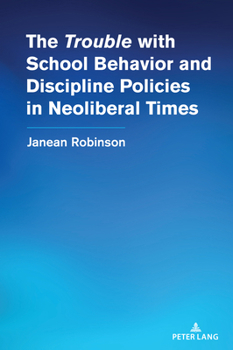The "Trouble" with School Behavior and Discipline Policies in Neoliberal Times
Neoliberalism, after decades of reform, continues to steer educational policies around the world. As private enterprise encroaches public education, schools are held accountable, tangled up in an internationally competitive culture of achieving benchmarks that meet technically managed standards. Not only is it academic performance that is audited but also codes of behavioral conduct.
As behaviour remains one of the most dominant discourses of schooling, it is discipline policies that are critiqued in this book, framed by tracing genealogical, historical, and political patterns of discipline practices in schooling from 16th century Europe through to 21st century Australia. Two in-depth, ethnographic case studies conducted in Western Australia (when the author was both teacher and researcher), are shared as theoretical tools to provide insights into how behavior management and discipline policies are enacted within the field of institutional secondary schooling.
As an alternative to the "Neoliberal" School, it is instead the voices, interpretations, and experiences of young people themselves, together with the voice of the author as narrator and theory-maker that speak back to neoliberal behaviour and discipline policies. These voices provide hope and a vision to reimagine educational narratives and pedagogical directions that are more inclusive, democratic and sustainable into the future.





